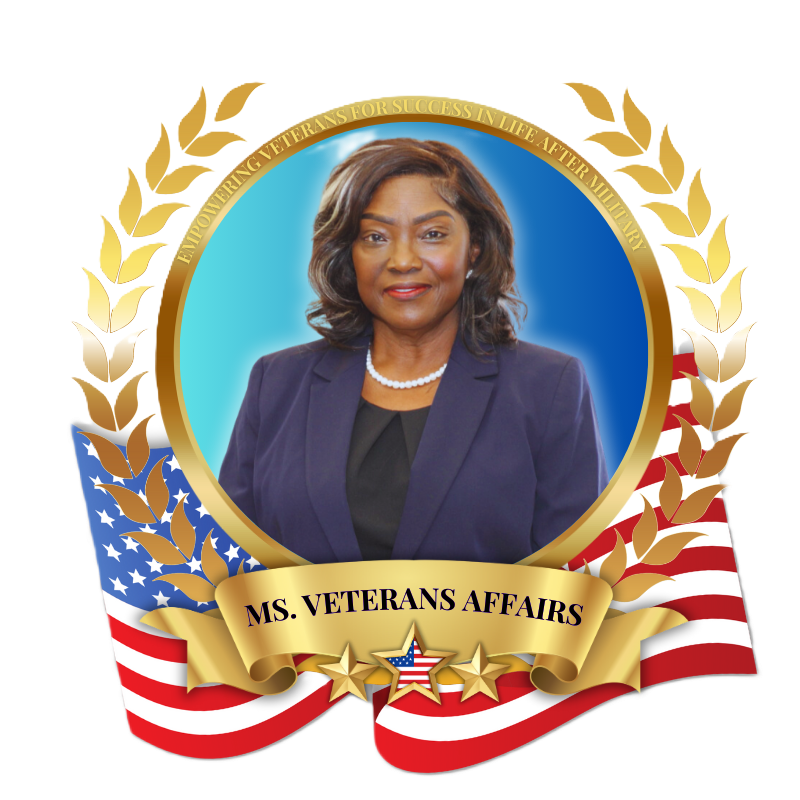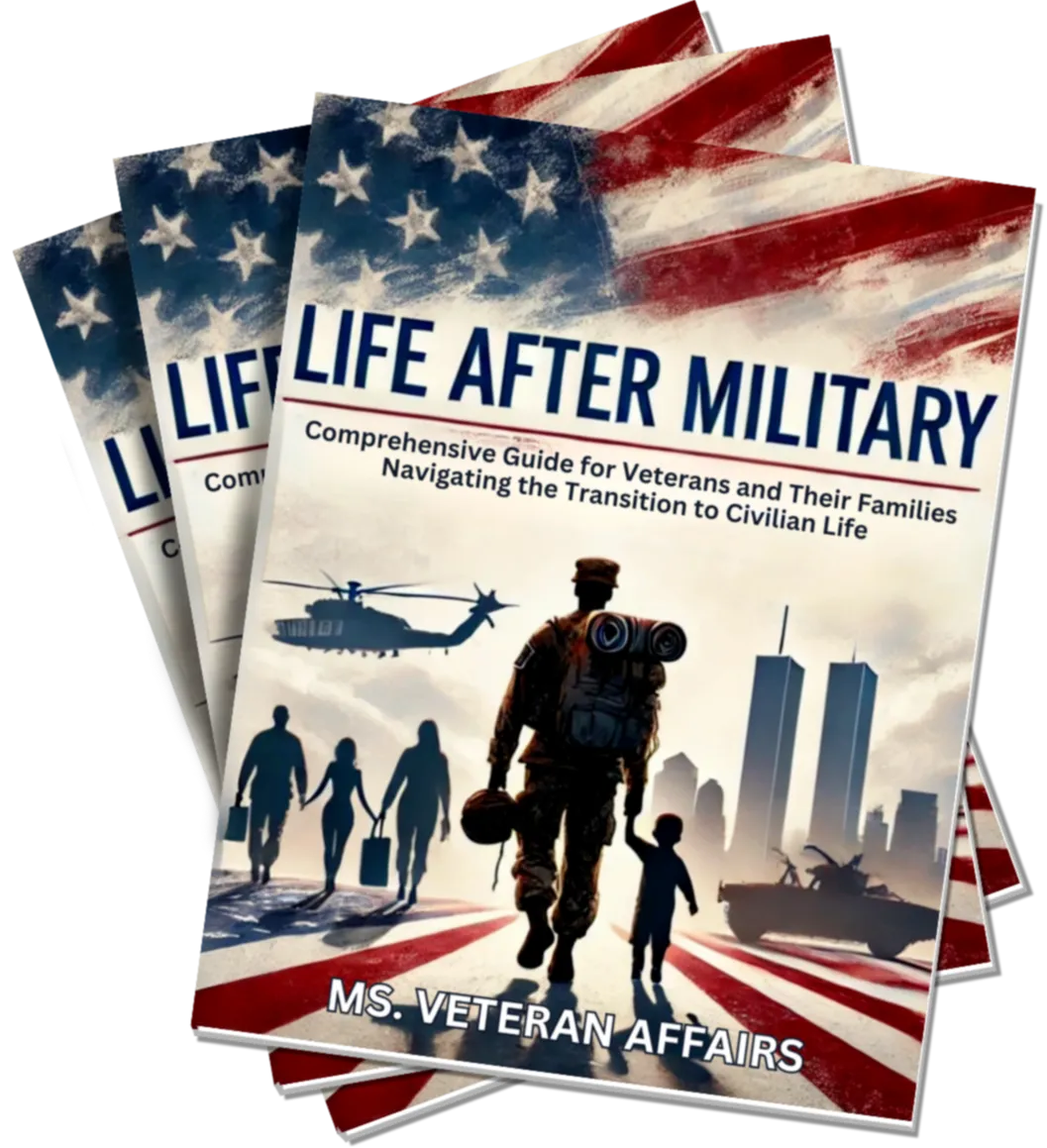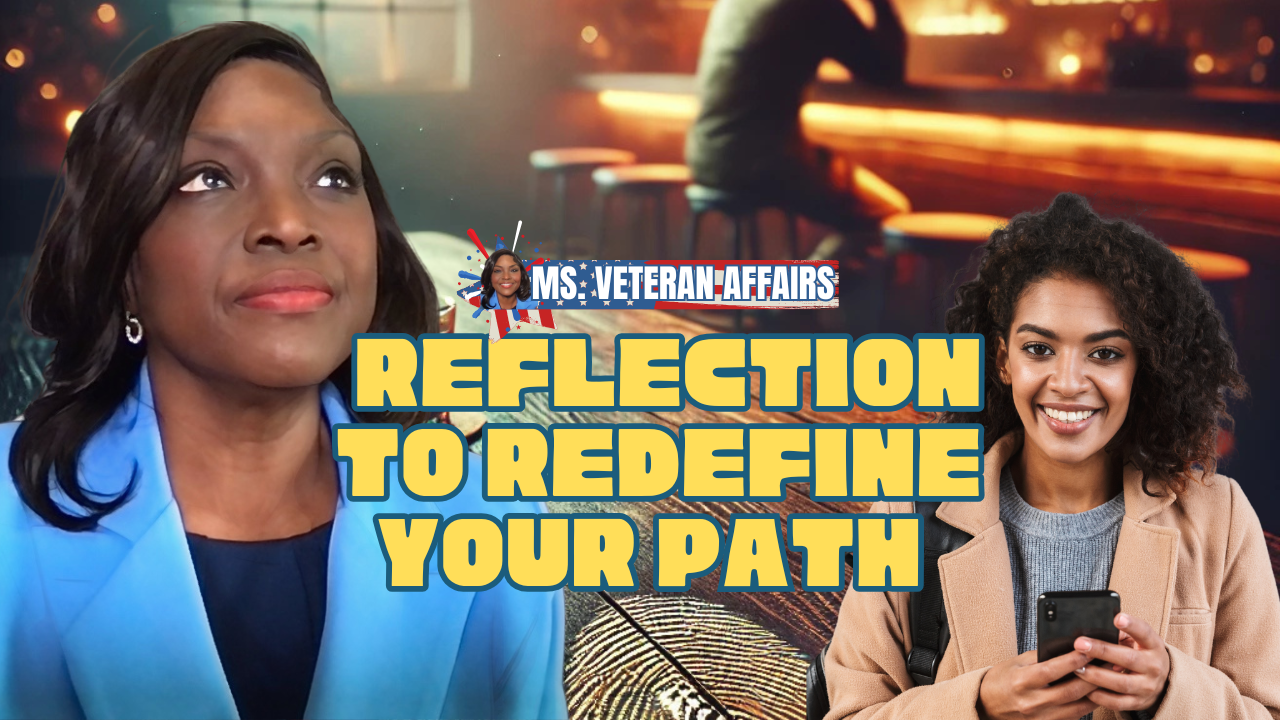Networking Strategies for Veterans at Job Fairs
Apr 17, 2025
Ms. Veteran Affairs’ Networking Strategies for Veterans at Job Fairs
The job fair buzzed with energy—tables lined with company banners, recruiters in polished suits, and hopeful job seekers milling about with resumes in hand. Ezekiel stood at the entrance, gripping his resume folder so tightly it creased the edges. His heart raced as he scanned the room. It was his first job fair since leaving the military, and he couldn’t shake the feeling that he didn’t belong.
He adjusted his tie for the third time, glanced at his watch, and muttered to himself, “What am I even doing here?”
“Looks like someone could use a little backup,” came a warm voice from behind him.
Ezekiel turned to see a woman with a kind smile and a confident posture. She extended her hand. “Hi, I’m Ms. Veteran Affairs. I’ve been in your shoes—or, well, pretty close. Mind if I give you a few pointers?”
Ezekiel hesitated but then nodded. “Honestly, I could use all the help I can get.”
Preparing Before the Fair
Ms. Veteran Affairs gestured to a nearby bench, and they sat down. “First things first, tell me about yourself. What’s your goal today?”
“I’m looking for a project management role,” Ezekiel said, “but I’m not sure how to explain my military background without confusing people.”
“That’s a common concern,” she said. “But here’s the thing: your military experience is an asset, not a hurdle. Before walking into a job fair, you’ve got to do your homework. Research the companies here. Know which ones align with your skills and values. Did you do that?”
Ezekiel scratched the back of his neck. “Not really. I just showed up.”
“No worries. Lesson learned for next time. For today, let’s focus on tailoring your approach to the companies that seem like a good fit. But first—do you have extra copies of your resume?”
He opened his folder, revealing a neatly stacked pile. “At least I got this part right.”
Ms. Veteran Affairs laughed. “That’s a great start!”
The Elevator Pitch
“Now, let’s work on your introduction,” she said. “Imagine you only have 30 seconds to grab a recruiter’s attention. What would you say?”
Ezekiel stammered, “Uh... Hi, I’m Ezekiel, and I was in the Army for ten years. I worked on logistics and operations, so... yeah.”
Ms. Veteran Affairs raised an eyebrow. “Not bad, but let’s make it sharper. Highlight what you bring to the table. For example: ‘Hi, I’m Ezekiel. I spent ten years managing logistics and operations in the Army, overseeing teams and multimillion-dollar assets. I’m looking to bring those leadership and organizational skills to a project management role.’”
“Wow,” Ezekiel said. “That sounds... professional.”
“Because it is,” she said with a grin. “Now, practice it with me.”
After a few tries, Ezekiel delivered his pitch with growing confidence.
Reading the Room
They stepped into the fair together, and Ms. Veteran Affairs scanned the room. “Here’s a tip: don’t try to visit every booth. Focus on quality over quantity. Look for companies that align with your goals and values.”
She pointed to a booth with a banner that read ‘Operations Careers in Tech.’ “That looks promising. Let’s start there.”
Ezekiel approached the booth, his heart pounding. He gave his pitch, and the recruiter’s eyes lit up. They asked him questions about his experience, and he found himself relaxing as he spoke.
Ms. Veteran Affairs watched from a distance, giving him an encouraging thumbs-up.
Building Genuine Connections
When Ezekiel rejoined her, he was beaming. “That went way better than I expected. They even gave me their business card!”
“Great job!” she said. “Now remember, it’s not just about handing out resumes—it’s about building connections. Ask questions about their company, their culture, and what they’re looking for. Show genuine interest.”
Following Up
As the fair began to wind down, Ms. Veteran Affairs offered her final piece of advice. “The real magic happens after the fair. Follow up with the people you met. Send them a thank-you email within 24 hours. Mention something specific from your conversation so they remember you.”
Ezekiel nodded. “Got it. I never realized how much strategy goes into this.”
She smiled. “Transitioning to civilian work is a lot like a mission. You need preparation, execution, and follow-through. But you’ve already proven you can adapt and lead—that’s half the battle.”
Walking Away with Confidence
As Ezekiel left the job fair, he felt lighter. His resume folder was thinner, his confidence fuller, and his path forward clearer. He turned back to wave at Ms. Veteran Affairs, who gave him a proud nod.
“Thanks for the backup,” he called out.
“Anytime,” she said. “You’ve got this.”
Discussion Questions:
- What challenges do veterans like Ezekiel face when attending job fairs for the first time, and how can preparation help overcome those challenges?
- How can veterans effectively translate their military skills into civilian job qualifications when networking with potential employers?
- Why is crafting a strong elevator pitch important, and what key elements should it include?
- How can building genuine connections during a job fair improve a veteran's chances of securing meaningful employment opportunities?
- What role does follow-up communication play after a job fair, and how can veterans make their outreach memorable to recruiters?
Join our community today!
Gain fresh insights every week—concise, impactful lessons designed to elevate your thinking, enhance self-awareness, and empower purposeful growth.
We hate SPAM. We will never sell your information, for any reason.













